Hair Care: The Ultimate Guide to Healthy and Radiant Hair
Taking care of your hair is not just about the products you use; it's about understanding what your hair needs and providing it with the nourishment and protection it deserves. Whether you're using high-quality hair appliances such as straighteners and curlers, or just trying to maintain a natural look, caring for your hair is crucial for achieving the best results. In this guide, we will explore essential tips and routines for maintaining healthy and radiant hair.
Understanding Your Hair Type
The first step toward effective hair care is understanding your hair type. Hair types generally fall into four categories: straight, wavy, curly, and coily. Each hair type has unique characteristics and requires specific care.
- Straight Hair tends to be more resilient but can get greasy quickly.
- Wavy Hair combines textures and benefits from lightweight products to enhance its natural waves.
- Curly Hair often requires more moisture and specialized products to define curls and reduce frizz.
- Coily Hair is usually the most fragile and needs intense hydration and gentle handling to avoid breakage.
Knowing your hair type will help you choose the right products and routines to keep your locks healthy and beautiful.
Daily Hair Care Routine
A consistent daily hair care routine can make a significant difference in the health and appearance of your hair. Here are some steps you should consider incorporating into your daily routine:
-
Cleansing: Use a sulfate-free shampoo tailored to your hair type to cleanse your scalp and hair without stripping away essential oils. Aim to wash your hair 2-3 times a week, or as needed, depending on your hair type and lifestyle.
-
Conditioning: Conditioning is vital for replenishing moisture and maintaining the health of your hair. Focus on the mid-lengths to the ends, where hair tends to be drier and more prone to damage.
-
Heat Protection: Before using any heat styling tools like straighteners or curlers, apply a heat protectant spray to shield your hair from damage. This is crucial for maintaining your hair's integrity and preventing heat-induced breakage and split ends.
-
Detangling: Use a wide-tooth comb or a detangling brush to gently work through knots and tangles. Start from the ends and work your way up to reduce the risk of breakage.
-
Leave-In Treatments: Incorporate leave-in conditioners or serums to provide extra moisture and protection throughout the day. These products can help tame frizz, add shine, and enhance the overall look of your hair.
Weekly Hair Care Tips
In addition to your daily routine, there are several weekly practices that can significantly improve your hair health:
-
Deep Conditioning: Once a week, treat your hair to a deep conditioning mask or treatment. This helps to replenish moisture, repair damage, and fortify your hair against future stress.
-
Clarifying: Use a clarifying shampoo once a month to remove product buildup and impurities from your scalp and hair. This resets your hair and allows your regular products to perform better.
-
Scalp Care: A healthy scalp is the foundation for healthy hair. Once a week, consider using a scalp scrub or massage to promote circulation and remove dead skin cells.
Protecting Your Hair While Styling
Styling your hair doesn't have to mean compromising its health. Here are some tips for protecting your hair while achieving your desired look:
-
Use the Right Tools: Invest in high-quality hair appliances with adjustable temperature settings. Lower temperatures are less damaging to your hair, so always start on a lower setting and increase if necessary.
-
Limit Heat Exposure: Try to limit the use of heat styling tools to a few times a week. On days when you don't use heat, explore heatless styling options, such as braids, buns, or rollers.
-
Protective Hairstyles: Wearing protective hairstyles, such as braids, buns, or twists, can help reduce stress on your hair and protect it from environmental damage.
Nutrition and Hair Care
What you eat significantly impacts your hair health. A balanced diet rich in vitamins and minerals can promote strong and healthy hair:
-
Protein: Hair is primarily made of protein, so ensure you consume enough protein-rich foods like eggs, fish, lean meats, and legumes.
-
Vitamins: Vitamins A, C, D, and E, as well as biotin and folate, are essential for healthy hair growth. Incorporate a variety of fruits and vegetables into your diet to get these vital nutrients.
-
Omega-3 Fatty Acids: These healthy fats found in fish, flaxseed, and walnuts can help keep your scalp and hair hydrated.
Conclusion
Hair care is a comprehensive process that goes beyond just washing and styling. By understanding your hair type, establishing a consistent care routine, using the right tools, and nourishing your body from the inside out, you can achieve the healthy, radiant hair you've always desired. Remember, healthy hair is a reflection of your overall well-being, so take care of yourself and your hair will thank you.





